Curbside Care for Moms and Babies Changes the Vision of Postnatal Care
February 22, 2021
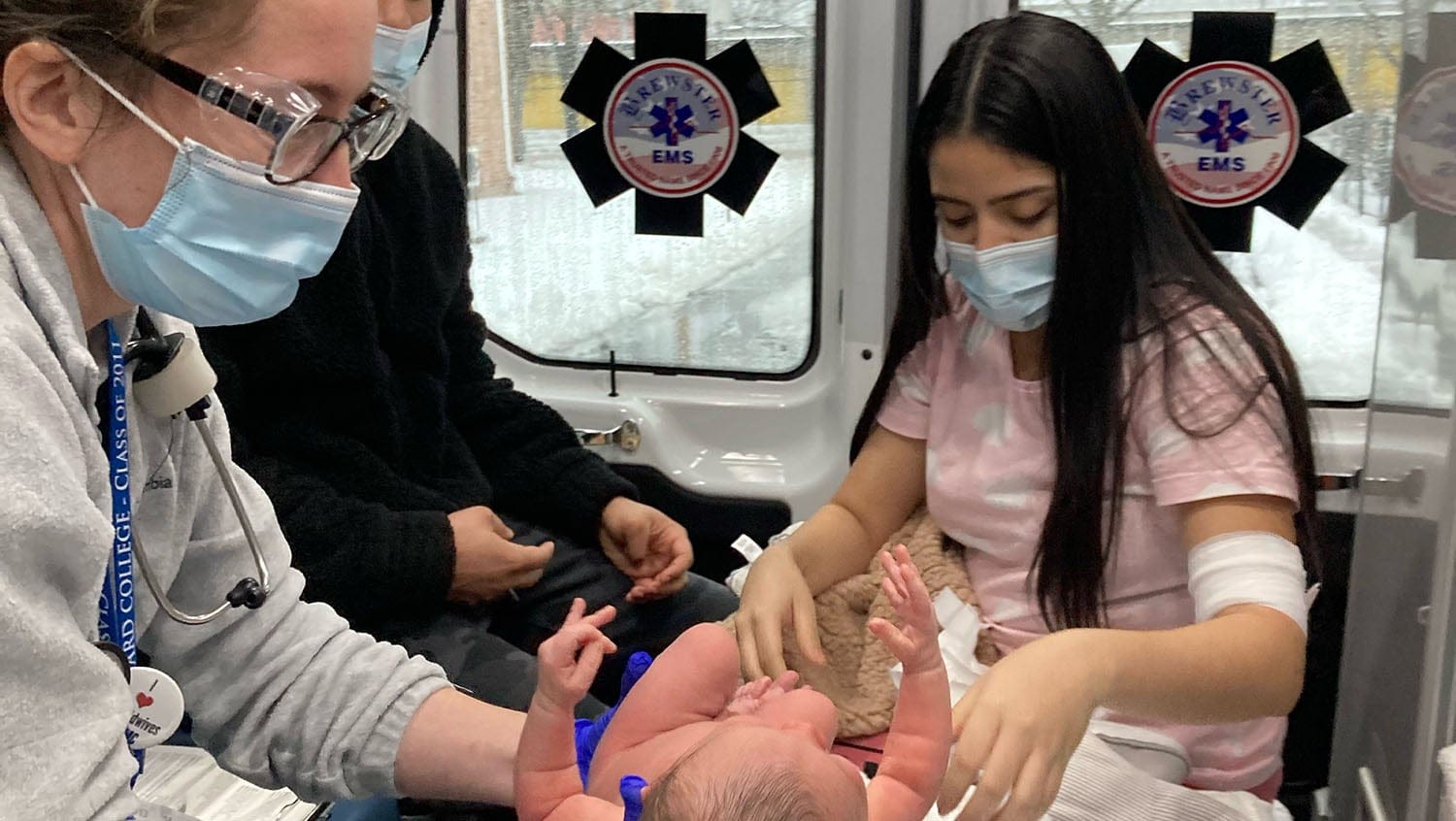
Courtesy Melissa Nass
BMC's new, innovative program was conceived in the context of the COVID-19 pandemic, but it could help comprehensive care access going forward.
Commonly dubbed the “fourth trimester,” the first six weeks following birth are critical. This period has long-term physical and mental health implications for both the mother and the newborn baby — and so, access to comprehensive healthcare is vital.
However, obstacles to access (which are heightened during the COVID-19 pandemic) and gaps in traditional care models, mean that many women who have given birth and their babies don’t receive the care they need during this vital period. This reality flies in the face of recommendations from multiple professional societies, including the AAP, ACOG, and WHO, that agree that moms and babies should have multiple points of contact with healthcare providers during this critical time.
According to the American College of Obstetricians and Gynecologists, “for many women in the United States, the 6-week postpartum visit punctuates a period devoid of formal or informal maternal support.”
A new program launched this month at Boston Medical Center hopes to address some of these concerns with postnatal care for both mothers and infants.
Curbside Care for Moms and Babies is a mobile visit program that provides mother-infant dyadic care during those crucial six weeks. In a typical Curbside Care appointment, a BMC nurse practitioner will see the baby and a BMC midwife will care for the mother. Dyads in the service have an opportunity for multiple appointments in the six-week timeline, and then they are handed off to BMC healthcare providers to resume care in the hospital clinics.
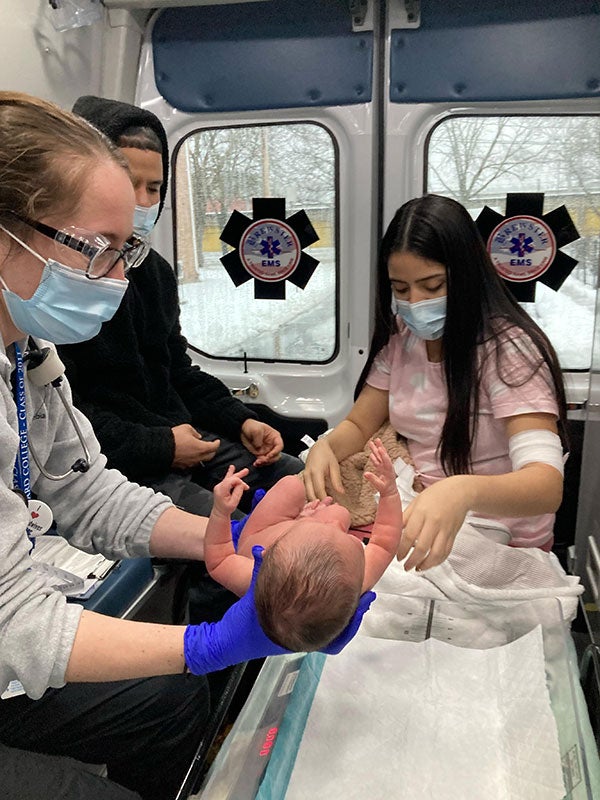
Melissa Nass, MD, MPH, a pediatrician at BMC who wrote the proposal for Curbside Care and launched the program, talked to HealthCity about how it could break down barriers to care, what makes it different from traditional postnatal care, and how it could expand in the future.
HealthCity: How did the idea for Curbside Care for Moms and Babies come about and what does it mean for access to postnatal care for both mothers and newborns?
Melissa Nass, MD: Early in the pandemic, our pediatric practice started using Mobile Programming to visit newborns born to COVID-positive mothers who could not join their babies for visits in our clinic. Mothers were so grateful, so appreciative for this service. We started thinking that it could be a service we provide to all mothers.
Traditionally, we ask mothers, after delivering, to come back to the hospital with the baby for check-ups with a pediatric provider. Mothers often take multiple buses, sometimes carting around a toddler or other children to bring their baby to these appointments. Despite the challenge of this undertaking, mothers do bring their infants in for care; however, they often do not return for care for themselves.
At BMC, 40% of moms never return for a postpartum visit.
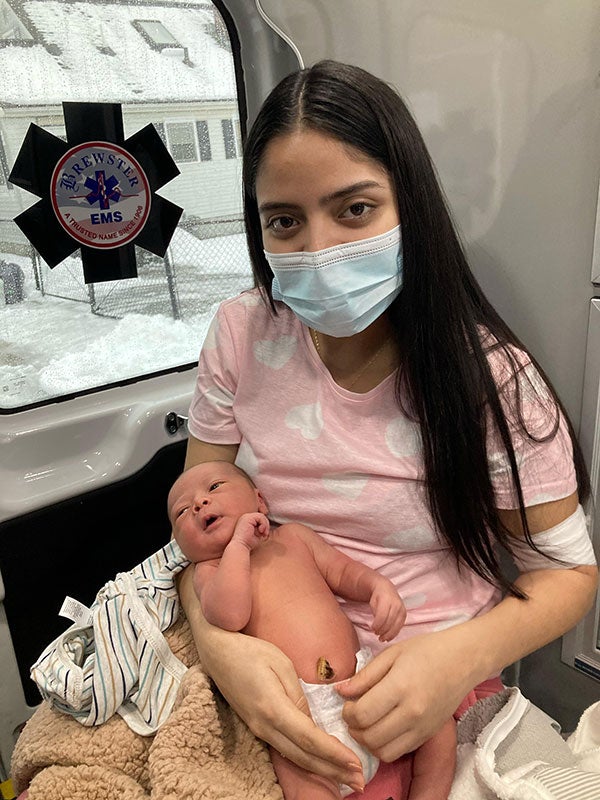
But we know that the first 6 weeks of life are critical for moms and babies. And we know that maternal health absolutely relates to the health outcome of the baby.
So, we started thinking, “What if we brought comprehensive, dyadic care to both moms and babies in the first six weeks of life? We could come to them. They wouldn’t need to take public transportation in the middle of a pandemic, and they wouldn’t need to arrange for childcare for their other children. We could do everything we do in the clinic on a Mobile Unit at the curb.
HC: How do you find patients for the program and what does a typical appointment look like?
MN: Moms and babies are recruited from our newborn nursery, and instead of being discharged with separate appointments in the BMC pediatric and obstetric clinics, they are discharged for follow-up care together on our Mobile Unit.
A key element to this programming is collaboration between pediatrics and BMC’s midwifery team. Each time either the mother or the baby is visited, the other one will also have an appointment. And the mobile service will provide the full range of comprehensive services that would be provided in-clinic.
For example, visits can include newborn feeding assessments, lactation support, evaluation for jaundice and weight gain, screening for postpartum depression and hypertension, and contraceptive counseling and provision of contraception if needed. There’s an opportunity for somewhere between four or five visits in that crucial six-week timeline for both the mother and the baby.
Then, after six weeks, there is a warm handoff of both the mother and the baby to BMC providers.
HC: Can you talk more about what you mean by a warm handoff?
MN: The concept behind a warm handoff is for one provider who’s familiar with the patient to hand the patient over to the next provider. The way a handoff happens in medicine most frequently is verbally between providers. In our program, we begin the conversation about follow-up care during the first visit. Then we work with our practice coordinators to ensure appointments for both moms and babies are in place when the dyads leave the Curbside Care program and resume traditional care in the hospital. In many cases, the Mobile Unit providers will reach out to BMC providers directly to ensure a smooth transition.
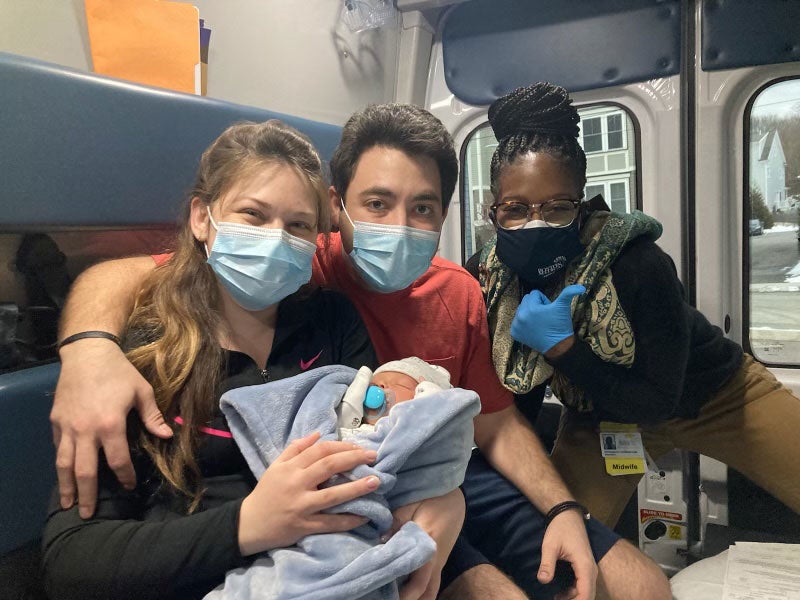
This warm handoff, which prioritizes continuity of care for both mom and baby, is essential to close gaps in care after the standard 6-week postpartum check.
HC: How can a service like this address the biggest issues among our patients in postnatal care?
MN: Health disparity data, specifically between white women and Black women in the postpartum period is particularly bleak around postpartum depression identification, connection to care, breastfeeding continuation rates, postpartum mortality rates — which is probably the most significant — rapid repeat unintended pregnancy, and a variety of other outcomes.
There are many things that our healthcare system should be doing to address racial disparities in the postpartum period, and our mobile programing isn’t enough. But I do hope that by eliminating hurdles, such as transportation and childcare, prioritizing continuity in place of fragmented care, and providing care outside of the “ivory tower” in the community, literally, at the curb, we are moving the needle in the right direction.
The healthcare gaps that exist in the first six weeks of life really potentiate cycles of generational inequity; this program has the potential to disrupt that cycle.
HC: You mentioned breastfeeding continuation rates. Does the mobile service provide lactation support?
MN: Yes, a lactation consultant is part of each appointment. Currently, lactation support is scarce in our pediatric practice. Most existing community programs are fee-for-service, making them unavailable to most of our patients. The idea that, through the Curbside Care program, patients are getting lactation support in the community, at their doorstep, is incredible.
HC: Postpartum depression affects 1 in 7 women. How does this care model take into account mental health?
MN: In a traditional model where the baby comes to pediatrics and the mother follows up with OB, the mother is typically screened for postpartum depression during both the pediatric visit and the OB visit. Both the pediatric provider and the OB provider work independently to connect mothers to appropriate behavioral health services. However, their efforts are not coordinated, there is not often follow-through, and many patients are able to fall through cracks in our fragmented systems.
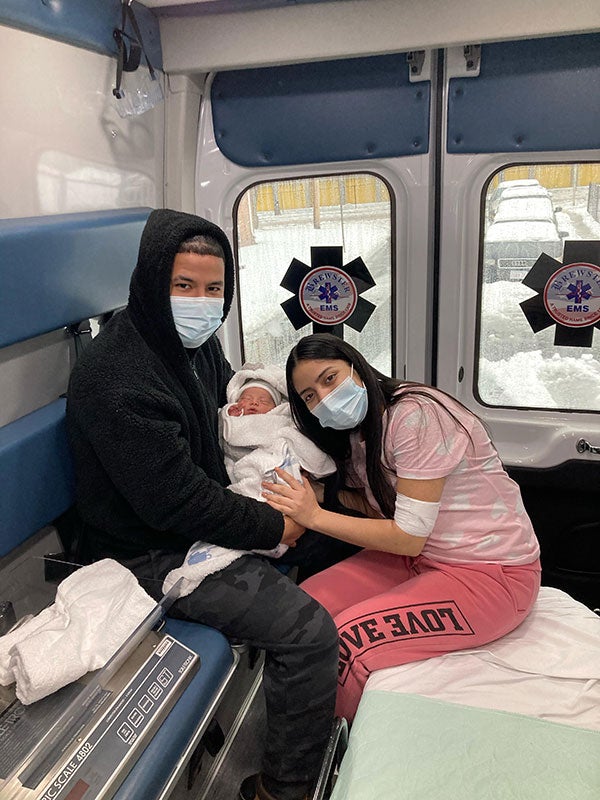
I’m hoping that, when we identify postpartum depression, it’s both the baby’s provider and the mother’s provider working together to connect this one person to the next step for treatment. And we hope that the warm handoff ensures a connection to and a follow-through with services.
HC: What are the plans for scalability and the vision for the service going forward?
MN: I think that if we really build this program, it has the potential to really expand. Could we run this program full-time? Do we have the patient volume to provide care in places that are farther away from the hospital where the service might be even more appreciated? I think so.
For right now, we’re recruiting from the newborn nursery, where babies are typically full-term and healthy. But there’s also the potential to recruit and care for more medically complicated babies who have graduated from the NICU. They are also babies, and dyads, that are incredibly vulnerable during this period of time and might benefit even more from this service.
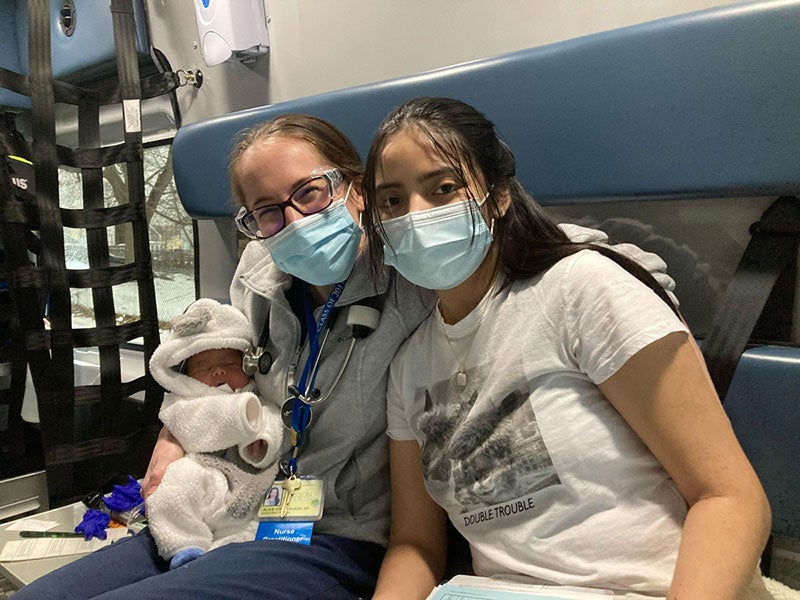
Curbside Care programming was conceived in the context of a global pandemic, during a period of great enthusiasm for alternative health delivery systems, but do I think that this programming will outlast the pandemic? Do I think that it may become a national model? I think there’s that potential.
This interview has been edited and condensed.


